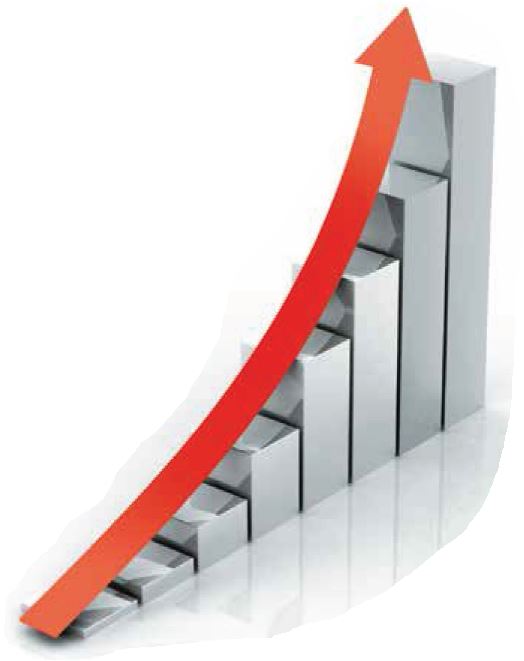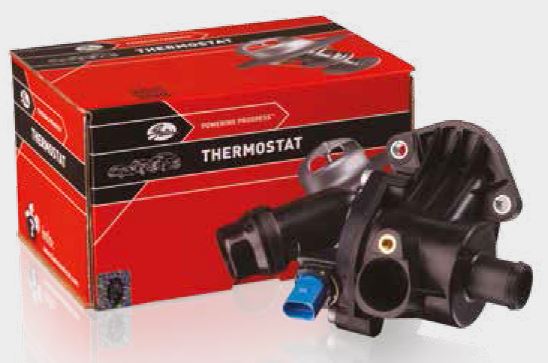Cooling

SMART THERMOSTATS, GOOD BUSINESSThe winter season sees a significant rise in the number of vehicles that require thermostat replacement. In fact, statistics reveal that 1m+ thermostat failures are detected every year in the winter, typically when the in-car heater fails – that’s good news for motor factors everywhere!
DESIGN TECHNOLOGY
MAP (Manifold Absolute Pressure ) controlled thermostats were developed to safely raise the operating temperature of cars to a constant higher level to optimise combustion and other accompanying factors. They supplement the conventional regulation system found in other thermostats by means of an electrically controlled, integrated heating element that is activated on demand by monitoring vehicle operating conditions. This allows the thermostat to moderate the engine temperature considerably more quickly so that it can operate at the most efficient temperature for a longer period. Benefits:• Optimum combustion due to consistent component temperatures • Improved power output at full load due to reduced coolant temperature • Reduced fuel consumption due to increased viscosity of the engine oil and subsequent reduced frictional loss • Lower pollution emissions FAILURE AND REPLACEMENTUnlike conventional thermostats, MAP-controlled thermostats are not subjected to natural wear; they are maintenance-free and designed to last the entire engine service life. However, external factors, such as low-grade coolants can lead to material fatigue. Other possible causes include thermal overloading and contamination due to repair/ replacement of cooling system components. Therefore, it is prudent to always replace the thermostat when replacing any faulty part in the cooling system, since any loss of functionality or a complete failure can have severe consequences – even engine damage. Although they remain undetected through warmer months, owing to ‘fail-safe’ features of modern thermostats; the subsequent overcooling of the engine typically produces the following symptoms: • Poor engine performance • Increased fuel consumption • Higher emission levels |
Related Articles Related Downloads |
